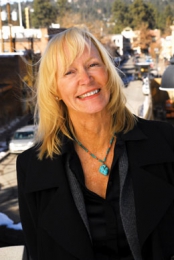
Over the past few months the Bend Bulletin has reported on a series of events and excessive fines and restrictions that have exasperated local restaurants and bar owners as well as directors and performers at the Les Schwab Amphitheatre.
Substantiated complaints about the local Oregon Liquor Control Commission personnel have placed an unnecessary burden on local businesses. A report provided to Cascade Business News indicated that regional inconsistencies and arbitrary enforcement of OLCC regulations have created an economic difficulty for our region. Facts show that OLCC rules are interpreted and enforced differently in this region to the detriment of individual licensees and the community. OLCC’s Central Oregon staff has been interpreting and enforcing rules in a manner that places this region at a competitive disadvantage in the hospitality, tourism and event industries.
A memorandum from Marney Smith of the Les Schwab Amphitheater pointed to at least three high profile national touring artists that decided not to stop in Bend due to the accessible restrictions on serving alcohol at the venue. The economic impact of the loss of just those three shows is so substantial that one has to wonder why OLCC has personally decided to strike at the heart of Central Oregon’s welfare.
It appeared certain that OLCC staff has enforced discretionary, unpublished and changing rules without any checks and balances. Until recently, when numerous local business as well as Visit Bend, Bend City Council, Downtown Bend Business Association, Old Mill District and Deschutes County Commissioner met with the OLCC director, attempts to work with the agency were met with indifference and even intimidation.
The mounting mistrust and lack of confidence in the regional OLCC staff has led to an apparent anti-business sentiment that is detrimental to our local economy particularly during a time when we need as much help as we can get. The actions and attitude of OLCC were spiraling out of control and set the stage for a competitive disadvantage for our region’s tourism industry.
Paramount among the problems addressed by our local business community stemmed from the mistrust of OLCC Regional Manager Jason Evers who appears to have become questionable in his conduct with local establishments.
Finally, following a series of missteps largely instigated by local OLCC personnel successful meetings with public officials and business owners have begun to offer some hope for community. OLCC Enforcement Director Linda Ignowski agreed to loosen some alcohol rules for at least two concerts at the Old Mill District. This month concert attendees of legal age at Les Schwab Amphitheater will be able to walk around and will not be confined to a specific area. However, the monitoring of consumption and the detailed plans that will be provided by Old Mill District will be no small feat.
There is still a level of poor and perhaps even misguided information coming from OLCC. The most recent case concerns the advertising for Happy Hours and how OLCC monitors the so called rules. According to the OLCC rules advertising for happy hours is alright but they cannot suggest that there are discount drinks. (It’s ok to actually discount drinks, but you cannot advertise it.) Recently the Blacksmith Restaurant was fined, not for using traditional media for advertising a happy hour, but listing it on its website. This type of targeted harassment and unwillingness on the part of OLCC to work cooperatively with local businesses has to stop.
Behind closed doors we can assume that the relationship between Bend’s regulated community and the current OLCC regional leadership is being discussed. OLCC\’s ability to effectively fulfill their obligations cannot be trusted unless OLCC staff is willing to establish a new level of cooperation.


